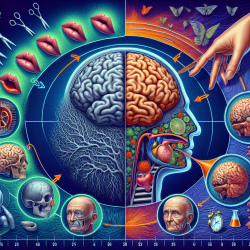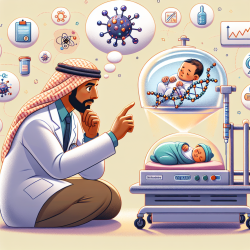Understanding the Connection Between Brain Aging and Aphasia Severity
Recent research has shed light on the impact of premature brain aging on aphasia severity, particularly in individuals who have suffered a stroke. The study, "Regional brain aging: premature aging of the domain general system predicts aphasia severity," provides valuable insights into how accelerated aging in specific brain regions can influence language recovery outcomes. This blog will explore how practitioners can use these findings to enhance their therapeutic approaches and encourage further research in this area.
Key Findings from the Research
The study highlights that individuals with stroke-induced aphasia often experience premature brain aging in the intact regions of the lesioned hemisphere. Notably, the left domain-general regions exhibit significant predictors of aphasia severity, with factors such as gray matter volume, lesion volume, and chronological age playing crucial roles.
Importantly, the research suggests that isolated aging in specific brain regions can significantly impact behavior, emphasizing the need for targeted therapeutic interventions. This understanding opens new avenues for speech-language pathologists to tailor their treatment plans based on individual brain aging patterns.
Implications for Practitioners
For practitioners working with children and adults recovering from stroke, these findings underscore the importance of considering brain aging as a factor in therapy planning. Here are some practical steps practitioners can take:
- Assess Brain Aging: Utilize neuroimaging techniques to assess brain aging in patients, focusing on domain-general regions. This can help identify individuals at risk of severe aphasia and guide personalized treatment strategies.
- Focus on Cognitive Reserve: Encourage activities that enhance cognitive reserve, such as cognitive exercises and language-rich environments, to potentially mitigate the effects of premature brain aging.
- Monitor Therapy Progress: Regularly evaluate therapy outcomes in relation to brain aging patterns. Adjust interventions as needed to address specific deficits linked to accelerated aging in particular brain regions.
Encouraging Further Research
While this study provides valuable insights, it also highlights the need for further research to explore the relationship between brain aging and aphasia severity. Researchers are encouraged to investigate:
- The impact of different therapeutic approaches on brain aging patterns and aphasia recovery.
- The role of lifestyle factors, such as diet and physical activity, in influencing brain aging and cognitive reserve.
- Longitudinal studies to track brain aging and aphasia severity over time, providing a deeper understanding of recovery trajectories.
Conclusion
The insights from this research offer a promising direction for enhancing aphasia therapy by incorporating brain aging assessments into clinical practice. By understanding and addressing the unique aging patterns of each patient's brain, practitioners can optimize therapy outcomes and support more effective language recovery.
To read the original research paper, please follow this link: Regional brain aging: premature aging of the domain general system predicts aphasia severity.










